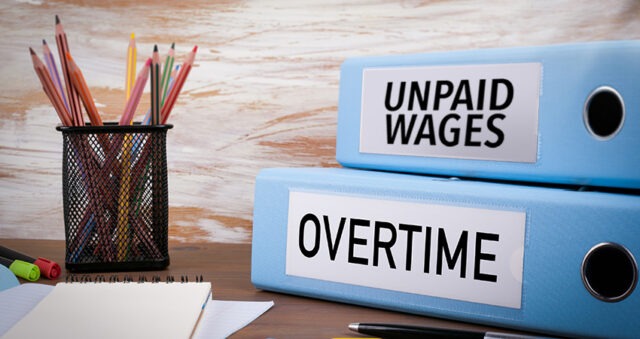
One of the most common issues employees face is not being paid their wages. This can happen for various reasons, including employers withholding wages, not paying overtime, or simply not paying employees at all. If you find yourself in this situation, it’s essential to know your rights and claim back your unpaid wages.
Can You Claim An Unpaid Wage?
Statistics show that many workers are not paid the wages they are owed. In some cases, workers never receive their final paychecks. In other instances, employers make deductions from employees’ pay not authorized by law. If you are one of these workers, you can take legal action to recover your owed wages.
The first step is to determine whether you are owed any unpaid wages. To do this, review your pay stubs and compare them to the hours you worked. If there is a discrepancy, you may be entitled to receive unpaid wages.
If you believe that you are owed unpaid wages, the next step is to contact your employer. In some cases, the employer may be unaware that they have not paid you properly. If the employer fails to pay you after making a request, you can file a claim with the Department of Labor. You may also want to get in touch with a California Unpaid Wage Attorney to provide complete legal guidance throughout the process.
The process of filing a claim with the Department of Labor can be complicated, and it is essential to have an experienced attorney on your side. An attorney can help you gather the necessary evidence and documents to support your claim. The attorney can also negotiate with the employer on your behalf to resolve this.
Who Are Eligible For Unpaid Wages Claim
Employees who are owed wages may be able to file a claim with their state’s labor department or wage and hour division. To be eligible for wage recovery, employees must have worked for the employer who owes them wages. Employees owed commissions, or other forms of compensation may also be eligible to file a claim.
The first step in filing a claim is determining the number of wages owed. This can be done by compiling a list of hours worked and calculating the wages earned for each hour worked. The next step is determining the statute of limitations for filing a wage claim.
Each state has its own set of rules, but claims must generally be filed within a few years of earning the wages. After the statute of limitations expires, employees may still file a lawsuit in court, but they will likely have to pay their legal fees.
Once the claim is filed, the state labor department or wage and hour division will investigate the claim and determine whether the employer owes the employee any unpaid wages. If the employer is found to owe unpaid wages, they will be required to pay the employee the amount, plus interest. The employer may also be required to pay the penalty to the state for failing to pay the employee’s wages.
What Factors Can Affect The Success Of Your Claim?
Several essential factors can increase the chances of success for an unpaid wage claim. First, employees should compile as much evidence as possible to support their claim. This can include timesheets, pay stubs, and other documentation that shows how much money is owed.
Employees should also contact an attorney specializing in employment law to help them file their claims. An attorney can help ensure that the claim is filed correctly and on time and represent the employee in court if necessary.
Finally, employees should be prepared to testify about their work history and work hours. They should provide specific dates and details about their work to support their claims.
In a nutshell, these factors are as follows:
- Gather enough evidence, including timesheets and pay stubs
- File the claim as soon as possible
- Hire an attorney specializing in employment law
- Be prepared to testify about your work history and the hours you worked.
How Long Do I Have To Claim Unpaid Wages?
Each state has its statute of limitations for wage claims. In most states, employees have a few years to file a claim after earning wages. After the statute of limitations expires, employees may still file a lawsuit in court, but they will likely have to pay their legal fees.
It is important to note that the statute of limitations may differ for federal employees. Federal employees have a more extended period to file a claim, and they may be able to recover more money than state employees.
What Are The Penalties For Not Paying Employees?
Employers who fail to pay their employees may be required to pay the employee the owed amount, plus interest. The employer may also be required to pay the penalty to the state for failing to pay the employee’s wages.
In some cases, employers may be required to pay double the amount of unpaid wages. This is known as liquidated damages. Liquidated damages are intended to punish employers who willfully violate wage laws and to deter other employers from doing the same.
Can I Be Fired For Filing A Claim?
It is illegal for an employer to fire an employee for filing a wage claim. If an employee is fired after filing a claim, they may file a retaliation claim against their employer.
Final Words
Working for an hourly wage comes with a lot of risks. If you’re not paid for all the hours you work, it can be not easy to make ends meet. But don’t worry, there are steps that you can take to get the money that you rightfully earned.


































